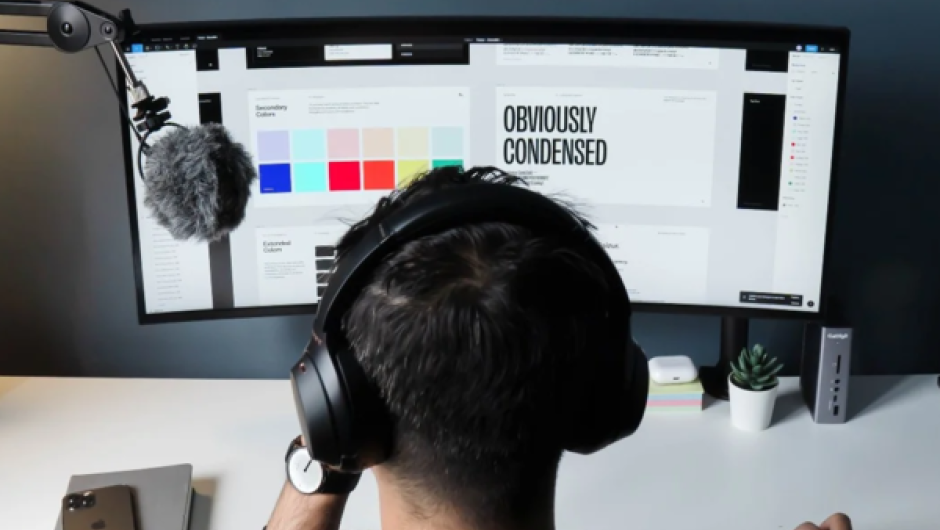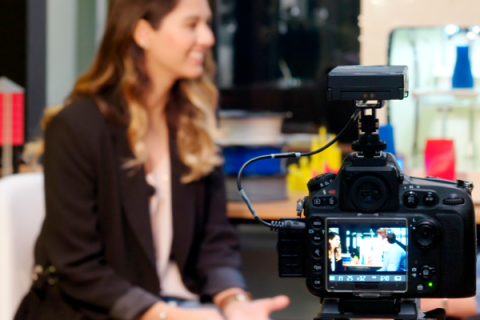Media studies brings communication, culture, and technology together. With a focus on critical analysis and creative expression, students learn to understand the impact of media on society.
Graduates can follow many career paths, from journalism, public relations, and advertising to content creation, digital marketing, and media production. The evolving nature of media provides opportunities to engage with emerging technologies, influencing the way we consume and share information.
Whether aspiring to be a content creator, media strategist, or cultural analyst, a foundation in media studies opens doors to exciting and influential career possibilities in the ever-evolving global media landscape.
The impact you could make
- Challenge stereotypes and address social issues through storytelling.
- Contribute to the evolution of media technologies.
- Shape the way information is delivered, promoting a more informed and interconnected global society.
What you could study
- Global digital cultures
- International journalism
- Community media for social action
- Producing and consuming social media
- Elements of visual media
- Power and resistance
- Media morals and ethics
- Critical approaches to media
Example module
Example project
Subjects it's useful to have studied first
Some media studies courses or apprenticeships will have requirements for previous qualifications in certain subjects. Entry requirements vary, so always check with the provider.
English language
English literature
Psychology
Sociology
Hard skills you'll develop
- Media analysis
- Digital editing
- Media law
- Media management
- Journalism and reporting skills
- Production
Soft skills you'll develop
- Communication skills
- Creativity
- Adaptability
- Presentation skills
Careers: Where it can take you
Find out more about your career prospects from studying media studies. The following information is based on a typical arts officer, producer, and director role.
Available jobs
Average salary
Career options
Media, publishing, and information services
Marketing and sales
Art, performance, and design
Information and communication technology

What is a… digital content influencer?
Imagine being known as a trendsetter and storyteller, grabbing the attention of audiences across online platforms. That sums up a digital content influencer. Full of creativity and an understanding of their target audience, a digital content influencer creates a unique personal brand through a mix of engaging videos, striking images, and relatable stories. Whether sharing lifestyle tips, beauty tutorials, or thought-provoking insights, their content resonates with followers, creating a sense of community and connection. Collaborating with brands, they not only shape trends but also become a trusted source of inspiration and information. With a finger on the pulse of digital culture, they use platforms like Instagram, YouTube, and TikTok, leaving a digital footprint that influences the lives of their dedicated audience.
Find your ideal career
Take our careers quiz to find your ideal job matched to your personality type.Getting in: Entry requirements
Find out more about what you'll need to study media studies at university or as an apprenticeship.
Average requirements for undergraduate degrees
Entry requirements differ between university and course, but this should give you a guide to what is usually expected from media studies applicants.
A levels
Scottish Highers
Vocational

Creative and design apprenticeships
Check out our industry guide to help you decide if a creative and design apprenticeship might be the right choice for you.69% of students
Other subjects you may be interested in
Let's talk about... creative and design apprenticeships
Listen to our brand new podcast all about degree apprenticeships in creative and design. Find out about funding, what day-to-day life is like, making friends, and more from our expert panel.
Considering an apprenticeship?
Applying for an apprenticeship is just like applying for a normal job. Here’s what you need to know:
-
1
Deadline
Apprenticeships don't follow the same deadlines as applying to uni, the deadline is down to the employer. -
2
Where to apply
You apply directly through the employer. -
3
No limits
You're not restricted to one apprenticeship application; you can do as many as you like. -
4
Apply to university and apprenticeships
There's nothing stopping you applying to university through UCAS, while also applying for apprenticeship vacancies. -
5
Find out more
A day in the life of a BBC Apprentice

Apprenticeship vacancies
Check out live apprenticeships vacancies.Explore further
Go deeper into topics around media studies with the following:-
1
THIS IS HOW Podcast
From Depop to Facebook, THIS IS HOW is the podcast that breaks down the digital creative jobs which matter now, to show how they could be part of your future. Listen, take the careers quiz, and access free resources and learning content recommended by expert guests.
-
2
TED – Media with Meaning
In a world filled with sound bites and paparazzi-snapped photos, there are still storytellers determined to create media with meaning. From feature films to citizen journalism, their work is worth spreading. -
3
Association for International Broadcasting
Keep up-to-date with the latest media events -
4
Interested in content creation?
The YouTube Creators channel gives you tips on how to get started with creating and analysing your content, as well as cool tips and tricks for editing and filming.
Application advice
Whether it's personal statement tips or what to write in a cover letter for an apprenticeship application, our application advice will help you get ahead in your media studies journey.Skills, experiences, and interests to mention
- Share moments or experiences that inspired your interest in media, such as influential films, impactful news stories, or engaging media campaigns.
- What are your media consumption habits and what types of content resonate with you? You can mention favourite TV shows, podcasts, or online platforms.
- Talk about your creative side and any experiences that prove your ability to think creatively. This could include personal projects, creative writing, visual arts, or involvement in media production.
- Highlight your research skills by discussing any projects, assignments, or personal initiatives where you conducted research related to media topics.
- Express your interest in staying informed about current affairs and how this influences your perspective on media.

Personal statement guide
We asked admissions tutors to share their advice for writing a strong and engaging media studies personal statement. Here's what they told us.














